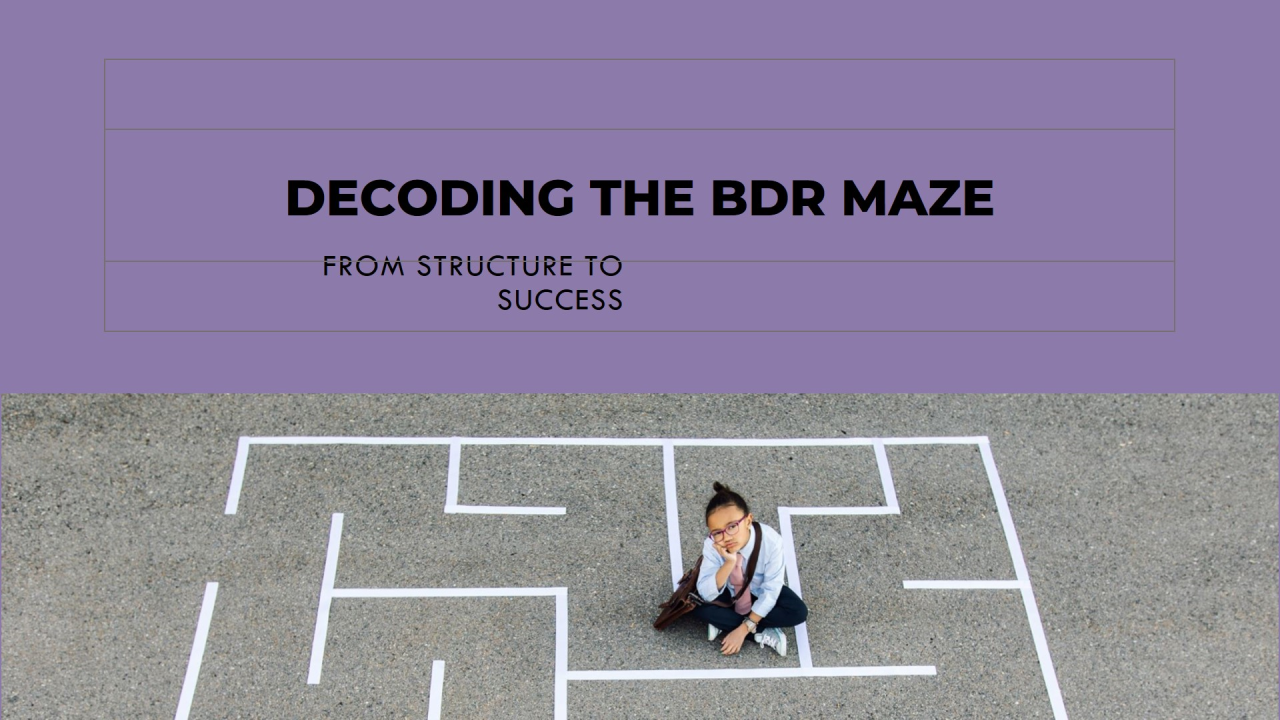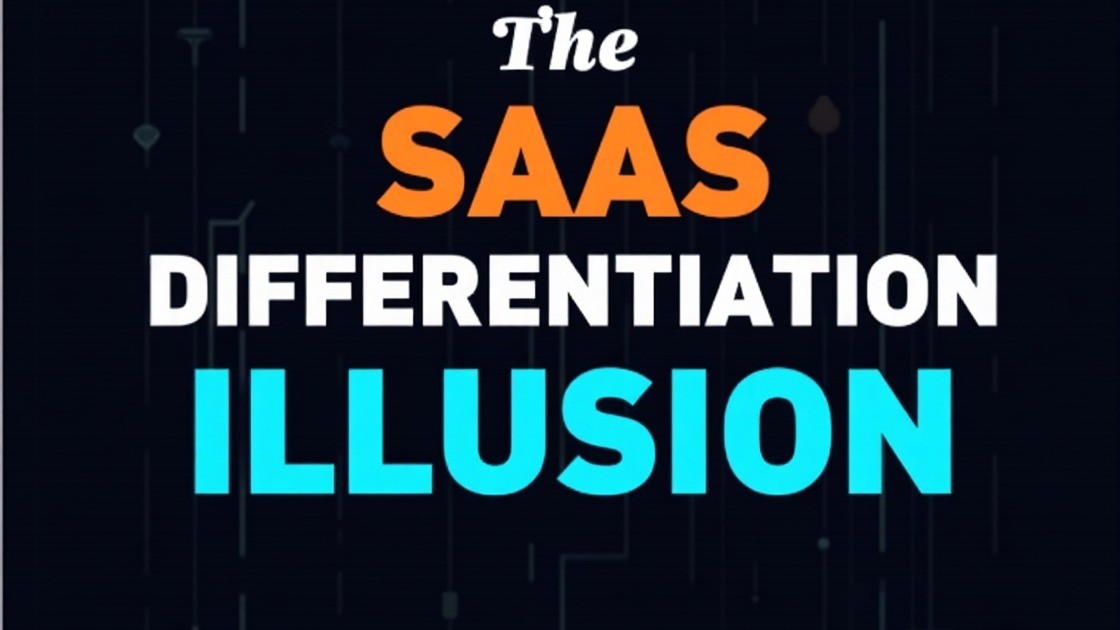Agency or Fractional CMO? What Early-Stage Startups Really Need
The ₹25 Lakh Question Every Founder Faces
The scenario could be that you just closed a seed round. Decided on a marketing budget of about ₹30-50 lakhs for the year. You need pipeline yesterday(like always :) Your sales team is waiting. And you are staring at two very different options and have to make a choice.
Option A: Hire a recommended marketing agency promising full-funnel campaigns and sometimes also brand storytelling
Option B: Bring on a fractional CMO who will own your GTM strategy
Both cost roughly the same. Both claim they'll drive growth. So which one do you actually need?
The Short Answer
Q: Should your startup hire a marketing agency or a fractional CMO?
A: If you need activity, hire an agency. If you need accountability for outcomes, hire a fractional CMO.
Why This Decision Actually Matters
The Truth About Startup Marketing
After working with 20+ SaaS startups over 18 years, I've seen the same pattern repeat. Most early-stage startups don't find ROI in agencies, not because of a lack of marketing ideas. They fail because no one owns the GTM design.
Here's what typically happens:
Month 1-2: Agency delivers beautiful website redesign or a SEO overhaul, LinkedIn content calendar, and Google Ads campaign
Month 3-4: Leads are coming in, but they're unqualified and your sales team complains about quality
Month 5-6: You realize you're paying ₹3- ₹4 lakhs/month for 50 leads that aren't converting
Month 7: You fire the agency and start over, having burned ₹24+ lakhs
The problem wasn't the agency's execution. It was that no one designed the engine before building it. Because agencies are great when there is product, PMF and u are ready to scale
The Fundamental Difference: Execution vs Orchestration
What Agencies Actually Do (And Don't Do)
Agencies are execution partners. They're brilliant at taking a clear brief and delivering high-quality output at scale.
What they excel at:
- Creating content campaigns based on your brief
- Running paid media with efficiency
- Designing brand assets and creative
- Managing social media calendars
- Producing events and webinars
What they don't do:
- Question whether you're targeting the right ICP
- Fix the sales-marketing handoff that's losing 60% of leads
- Tell you to stop investing in a channel that's not working
- Align your messaging with actual sales objections
- Own your CAC and pipeline metrics
Why? Because agencies are paid for deliverables, not decisions. Their incentive is to execute the brief, not rewrite it.
What Fractional CMOs Actually Do (And Why It's Different)
Fractional CMOs are strategic operators. They own outcomes, not outputs.
What they're accountable for:
- Designing your entire GTM strategy from scratch
- Deciding which channels to invest in (and which to remove looking at resources, budgets and company priortities)
- Aligning marketing with your sales cycle and targets
- Building the measurement framework that tracks what matters
- Coaching your team and vendors toward unified goals (link this to leadership article)
- Owning CAC, pipeline quality, and conversion metrics
The critical difference: A fractional CMO gets fired if your pipeline doesn't grow. An agency gets renewed if they delivered the contracted number of meetings or blog posts.
The Real Comparison: What You're Actually Buying
When Founders Waste Money: Real-World Scenarios
Here I am just trying to give a few scenarios which I have seen don’t work out and the realization comes only after we have spent most of our yearly budget.
Scenario 1: The "Agency-First" Mistake
Company type is a B2B SaaS, Pre-Series A, ₹2 Cr ARR
Hire: Performance marketing agency (₹3.5 lakhs/month)
What happened:
- Month 1-3: Agency runs Google and LinkedIn ads, generates 200 leads
- Month 4: Sales converts only 2 leads (1% conversion rate)
- Month 5: Founder realizes ICP was wrong, messaging didn't address real pain points
- Month 6: Fires agency, has spent ₹21 lakhs with 2 customers to show for it
What was missing: Someone to validate ICP, test messaging, align with sales objections, and design the funnel before running paid traffic.
Cost of mistake: ₹21 lakhs + 6 months of runway burned
Scenario 2: The "No Strategic Owner" Problem
A seed stage startup, with around ₹1.5 Cr ARR hires a Content agency + SEO agency + Freelance designer
What happened:
- Three vendors working independently, no unified strategy
- SEO agency optimizes for keywords that don't match buyer intent
- Content agency writes thought leadership that doesn't support sales
- Founder spends 20 hours/week coordinating and briefing
- After 9 months, traffic is up but pipeline hasn't moved
What was missing: Senior strategic owner to orchestrate all channels toward one GTM goal.
Cost of mistake: ₹35 lakhs in vendor fees + founder's time + opportunity cost
Scenario 3: The "Right Sequence" Success
A seed stage company at around ₹3 Cr ARR that hires a Fractional CMO for first 6 months
What happened:
- Month 1-2: CMO audits current efforts, refines ICP, fixes messaging
- Month 3-4: Builds GTM playbook, aligns with sales, sets up tracking
- Month 5-6: Runs pilot campaigns in-house to validate channels
- Month 7: Brings in agency to scale what's working
- 12 months later: Pipeline up 150%, CAC down 45%
Why it worked: Strategy and systems were built first. Agency could then execute with confidence.
ROI: ₹18 lakhs CMO investment → ₹2.4 Cr additional pipeline
To be honest there are scenarios when a CMO leadership does not work out as well. The basic assumption is a good product with a strong PMF for any type of success. But in many of the cases, we are able to tell within the first 6 months if there are fundamental problems to be solved. But the main point here is that the agency model would not have worked in any case. And we are speaking about which to choose out of the two.
So, this brings us to the next part which, is what framework do you use to choose whats the best fit for your startup and for your unique circumstance?
The Decision Framework: Which One Do You Actually Need?
Hire a Marketing Agency When:
You already have these in place:
- ✓ Clear ICP validated by at least 20 closed deals
- ✓ Messaging that converts (tested with real prospects)
- ✓ GTM strategy documented and agreed upon
- ✓ Sales-marketing alignment and handoff process ( okay so this is utopia :) but you know what I mean. If you ignore the regular sales and marketing complains do the conversion rates and revenue conversion work for you is the main question)
- ✓ Internal marketing owner who can write good briefs
- ✓ Measurement framework tracking pipeline and CAC
And you need:
- Scale and execution bandwidth across multiple channels
- Specialized skills (video production, advanced SEO, etc.)
- Consistent content output and creative production
Hire a Fractional CMO When:
You're experiencing these symptoms:
- ⚠️ Marketing feels scattered. Which means- lots of tactics, no system
- ⚠️ You're not sure which channels to prioritize or kill
- ⚠️ Leads are coming in but sales says they're not qualified
- ⚠️ You can't explain your CAC or where pipeline comes from
- ⚠️ Marketing and sales don't have a clear handoff process
- ⚠️ You're working with vendors but no one owns the strategy
- ⚠️ You have budget but don't know how to invest it wisely
- ⚠️ Founder is spending too much time on marketing and is frustrated
And you need:
- Senior judgment to design your GTM engine from scratch
- Someone to align marketing with your sales cycle and targets
- Ownership of business outcomes, not just marketing tasks
- Strategy and systems before scaling execution
Making a wrong decision includes other costs apart from just the vendor fees. Lets look at that as well.
The Hidden Costs No One Talks About
What Hiring Wrong Actually Costs
Direct costs:
- ₹20-40 lakhs in wasted vendor fees
- 6-12 months of runway burned
- Opportunity cost of delayed growth
Indirect costs:
- Sales team loses confidence in marketing
- Founders spend 15-20 hours/week managing vendors
- Team burnout from constantly changing direction
- Difficulty raising next round due to poor unit economics
What Getting It Right Unlocks
With the right foundation:
- Marketing spend becomes predictable and scalable
- Sales and marketing work as one revenue engine
- You can confidently increase budget knowing ROI
- Agencies and vendors can execute with clarity
- Your next CMO hire inherits a working system, not chaos
- More importantly you know what works and what does not work and why
The Smart Founder's Sequencing Strategy
Phase 1: Fractional CMO First (Months 1-9+ months)
Investment: ₹2.5-4 lakhs/month
Focus: Build the foundation
- Validate ICP and messaging
- Design GTM strategy and channel mix
- Set up measurement and attribution
- Create playbooks and processes
- Test and learn in pilot mode
Phase 2: Add Agency Support (Months 9-15)
Investment: ₹3-5 lakhs/month (agency) + CMO oversight
Focus: Scale what works
- Hand validated strategy to agency for execution
- CMO oversees and optimizes
- Expand to additional channels
- Build content engine at scale
Phase 3: Build Internal Team (15-18+ months)
Investment: Hire full-time as economics support it
Focus: Internalize and compound
- Bring channels in-house selectively
- Hire specialists in proven channels
- Transition from fractional to full-time leadership
- Agencies handle specialized or overflow work
Why this sequence works: You build the engine before scaling it. Agencies amplify what's working, not guess at what might work. Sometimes the timelines can be faster as well
A Simple Analogy That Makes It Clear
Think of Building a House
Agency = Construction Crew
Great at executing the blueprint. Give them detailed plans and they will build exactly what you asked for, on time and on budget.
Fractional CMO = Architect
Understands how you'll actually live in the house. Designs the structure to match your lifestyle, budget, and future needs. Prevents you from building a mansion with no plumbing.
Would you hire a construction crew without an architect?
Not if you want a house that actually works.
Would you pay an architect but never start construction?
Not if you actually want to move in.
You need both. But sequence matters.
In Short: The One-Liner You Need
Agencies run sprints. Fractional CMOs build tracks.
You can't run fast on tracks that don't exist.
But tracks without runners don't win races either.
Build first. Then scale.
What Questions Should You Ask Yourself?
Before making this decision, honestly answer:
Do we know which ICP segments convert best and why?
If no → You need strategy first (Fractional CMO)
Can we articulate our value prop in a way that converts cold prospects?
If no → You need messaging clarity first (Fractional CMO)
Do we have data showing which channels drive pipeline at what CAC?
If no → You need measurement infrastructure first (Fractional CMO)
Are sales and marketing aligned on lead definitions and handoff?
If no → You need operational design first (Fractional CMO)
Can we write clear, strategic briefs for what we need executed?
If no → You need someone who can (Fractional CMO)
If you answered "yes" to most of these, you're ready for an agency.
If you answered "no" to more than two, you need strategic leadership first.
What Actually Happens Next
The Agency Path
Best case: You've done your homework, have clear strategy, and they execute brilliantly. You scale efficiently.
Worst case: You spend ₹30 lakhs over 9 months on beautiful campaigns that don't convert because the foundation was wrong. You start over.
Realistic case: After 4-6 months, you realize you need more strategic oversight and either hire a CMO or bring strategy in-house. You've learned expensive lessons.
The Fractional CMO Path
Best case: Within 6 months you have a validated GTM engine, clear playbooks, and can scale with confidence. You bring in agencies to amplify what works.
Worst case: You hire the wrong fractional CMO who's more consultant than operator. You get strategy decks but no execution. (This is why vetting matters.)
Realistic case: In 3-4 months you have clarity on what works. You build systems over 6-12 months. You scale strategically instead of guessing.
The Real Answer: It's Not Either/Or Forever
Here's what mature GTM organizations look like:
Fractional/Full-Time CMO → Owns strategy, systems, and outcomes
+ Agency Partners → Execute at scale in specialized areas
+ Internal Team → Own core channels and coordination
But sequence matters. Build the brain before you scale the hands.
Making the Decision: A Quick Diagnostic
Score yourself honestly (1 = No, 5 = Yes):
- [ ] We've closed 20+ deals and know our ICP cold
- [ ] Our messaging converts in sales calls and on our website
- [ ] We can measure CAC and pipeline by channel accurately
- [ ] Marketing and sales have a smooth, documented handoff
- [ ] We have someone internal who can write strategic briefs
- [ ] We've validated 2-3 channels that drive qualified pipeline
- [ ] We have clear quarterly OKRs for marketing tied to revenue
Score 25-35: You're ready for an agency to scale execution
Score 15-24: You need both- CMO for strategy, agency for support
Score 0-14: Get strategic leadership first, execution second
Agencies execute campaigns against a brief. A Fractional CMO creates the brief, designs GTM, and is accountable for pipeline, CAC, and payback.
When ICP and messaging are validated, two channels show repeatable economics, and you need production scale (SEO/content, paid ops, creative).
When leads don’t become pipeline, messaging drifts, you can’t see CAC by channel, or the founder is the marketing bottleneck.
Yes. Best sequence: CMO builds strategy → agency scales execution under CMO oversight.
ICP/messaging, channel thesis, sales-marketing alignment, CAC/payback by channel, pipeline velocity, and a revenue dashboard.
Quality delivery against the strategy: content production, paid media management, SEO ops, creative, events/webinars.
30–45 days for clarity and fixes; around 90 days to see pipeline movement if sales alignment + tracking are in place.
About Envizon
Envizon helps early and growth-stage B2B SaaS startups build their go-to-market (GTM) engine, before they hire a full in-house team.We combine Fractional CMO leadership with a full-stack execution team across outbound, inbound, content, AI, paid, and PR.Not an agency. Not just advisory. Envizon acts as your internal GTM partner- bringing strategy, systems, and execution together to help founders scale faster and smarter.
Knowledge Themes
Looking for the best B2B marketing agency alternative?
Envizon combines Fractional CMO leadership with execution across all GTM channels




